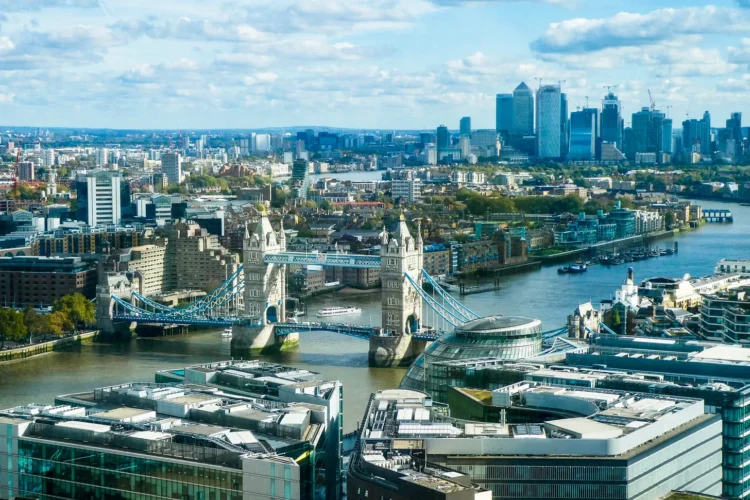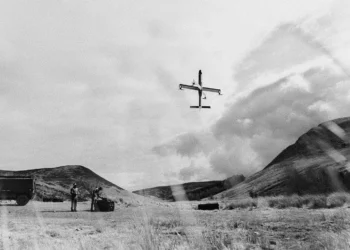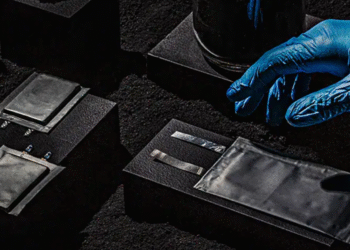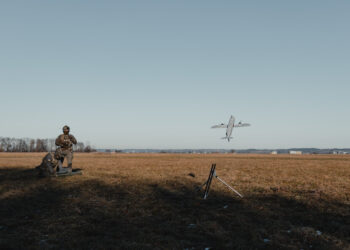The United Kingdom is obviously one of Europe’s main military powers, yet a new report from Parliament’s Defence Committee warns that the country is relying on old strengths and not building new forces fast enough. At the same time, the report makes clear that Britain still carries a large share of the work of defending Europe, through NATO and through a slowly rebuilt link with the European Union.
The report, entitled “The UK contribution to European Security,” reads the UK’s role in European security through three ways. It looks at how Britain uses alliances and regional groups, how it looks at and controls at the defence industrial base, and also looks at how national resilience at home supports the wider shield around Europe. Those lenses give a clear view of three concrete ways the UK still supports the defence of the EU, even after Brexit.
This report lays it out plainly:
NATO continues to be the cornerstone of UK defence policy, yet the Alliance faces challenges from Russian aggression; shifting US priorities; and systemic threats posed by China, Iran and North Korea. The UK must urgently strengthen its conventional and nuclear capabilities, improve interoperability with Allies, strengthen its defence industrial base and ensure it can defend the UK homeland and overseas territories.
Here are three important points to consider when thinking about the future of UK–EU defence in the next decade and beyond. The stakes if the UK does not begin to reconsider its role, wrote the committee, are, in a word, dire.
“In order for the UK to play the appropriate leading role in European security, it must address its readiness for contemporary war,” they wrote.
Building the Joint Expeditionary Force
The first route towards increased EU-UK cooperation in Europe’s defence runs through the Joint Expeditionary Force. The JEF is a UK led group of like minded northern states that focuses on the High North, the North Atlantic, and the Baltic Sea. The Ministry of Defence calls it an increasingly important tool for security in that region, and the National Security Strategy ties it directly to tasks like tracking threats to undersea cables and Russian “shadow fleets” that move in European waters.
“The UK’s role as a framework nation in JEF means that it has to ensure it is leading both politically and militarily including by ensuring that it has the capabilities required for exercises and operations in the High North and Polar regions,” wrote the committee. “The UK must ensure that the JEF is able to respond at pace and protect its member nations (and in particular their critical national infrastructure installations) given the increasing threat posed in the High North and the Baltic Sea.”
London sets much of the tone for exercises, planning, and crisis response. The committee heard criticism from some experts that British political leadership has not always been strong enough, for example when the JEF did not move quickly after cable attacks in the Baltic. Yet the same witnesses also told MPs that partner countries still see the JEF, and UK leadership within it, as more useful than other formats. Estonia and Finland stressed the importance of this structure when the committee visited.
The committee concludes that the UK is expected to lead the JEF politically and militarily, and must field the capabilities needed for exercises and operations in its speciality regions. It urges the Government to ensure the JEF can act quickly and protect member states’ critical infrastructure, given rising threats around the High North and the Baltic, and says it will scrutinise the Defence Investment Plan for concrete steps to support that role.
Put simply, “the coming decade [is] likely to prove ‘far more challenging’ than the previous one—therefore the JEF [must] receive more ‘political attention’ and should be able to take on more military tasks in northern Europe.”
The New EU-UK Partnership
The second route lies in the rebuilt political link between London and Brussels. The report notes that, after Brexit, the EU grew into a far more active security and defence player, especially in the industrial space. British experts told the committee that the UK has not been able to engage as effectively with EU security and defence programmes from outside the Union, even though a closer relationship would help develop the capabilities that keep the continent safe.
In May 2025 the Government announced a new security and defence partnership with the EU. It is a political framework rather than a treaty, and the text is light on fine detail.
“The UK Government has endorsed greater EU-NATO working but should now identify specific measures through which it could best support the improvement of the relationship between the EU and NATO,” wrote the committee.
Still, it suggests several channels for growth. As London and Brussels build regular dialogue and consultation, the committee expects to explore UK participation in EU Common Security and Defence Policy missions and operations, and a a possible British contribution to the European Peace Facility.
The committee also commented on the movement of forces. Because the UK has applied to join the PESCO Military Mobility project, which aims to make it easier to move troops and equipment quickly by road, rail, air, and sea across EU territory, it looks to take part in the logistical chain needed for a stronger and more resilient Continent
These steps are still at an early stage. A framework participation agreement for these missions has not yet been signed. Talks on the Defence Agency link and on concrete EU missions remain in progress. Even so, the committee treats the partnership as a welcome sign that the UK and EU both accept that their security is bound together, and that Britain can still support EU defence through shared missions, shared funds, and shared planning.
A Newly Armed Continent
The third route runs through factories, not headquarters. Brussels has started to put real money behind Europe’s arms makers, including through the new SAFE instrument for joint defence investment. The Council of the EU has already opened the door to talks on bringing the UK and Canada into SAFE. Witnesses told MPs that closer industrial ties between London and Brussels are now “a necessity, not a luxury,” and warned that it makes little sense for some accession states to enjoy more access to EU defence schemes than a former member with Britain’s industrial base.
Industry backs that view. Companies and trade bodies from space, aerospace, and missile sectors told the committee that EU programmes would gain from British involvement. BAE Systems warned that being shut out of EU initiatives over the long term would shrink chances for shared design and development with European partners. The message is simple. If British and EU firms drift apart while the threat picture darkens, both sides end up weaker.
The report is clear about the obstacles. Current EU rules on export controls and intellectual property make some projects unattractive to non member states. A number of EU governments are wary about opening schemes to the UK. At the same time, several smaller member states are actively lobbying to bring Britain and the United States into joint projects. The committee urges ministers to move fast on SAFE and related programmes so that UK firms sit inside European supply chains rather than looking in from the sidelines.
Industrial cooperation is not a favour to Brussels. It is one of the few ways Britain can help build real mass in European forces. A stronger shared industrial base means more shells, more missiles, more drones, more air defence systems, and more ships, produced at a tempo that fits a long war, not a short campaign. The report’s core point is blunt. The UK cannot carry Europe’s defence alone, and Europe will struggle to defend itself as well without the UK. Shared factories, shared contracts, and shared finance are what turn that fact into actual kit and stockpiles.
None of this will be simple. The committee notes that British forces still lack depth, that the UK industrial base still works at peace time speed, and that there is still no complete plan for the defence of the homeland. Yet the report also sets out practical ways the UK already supports European defence, and how it could do more without giving up control of its own policy.
By leading the JEF in the north, by shaping a new security and defence partnership with the EU, and by stepping into joint industrial schemes like SAFE, the UK still helps hold the line in Europe. The open question is whether London will now move fast enough to turn frameworks and communiqués into ships in the water, aircraft in the air, and equipment on the shelf.












